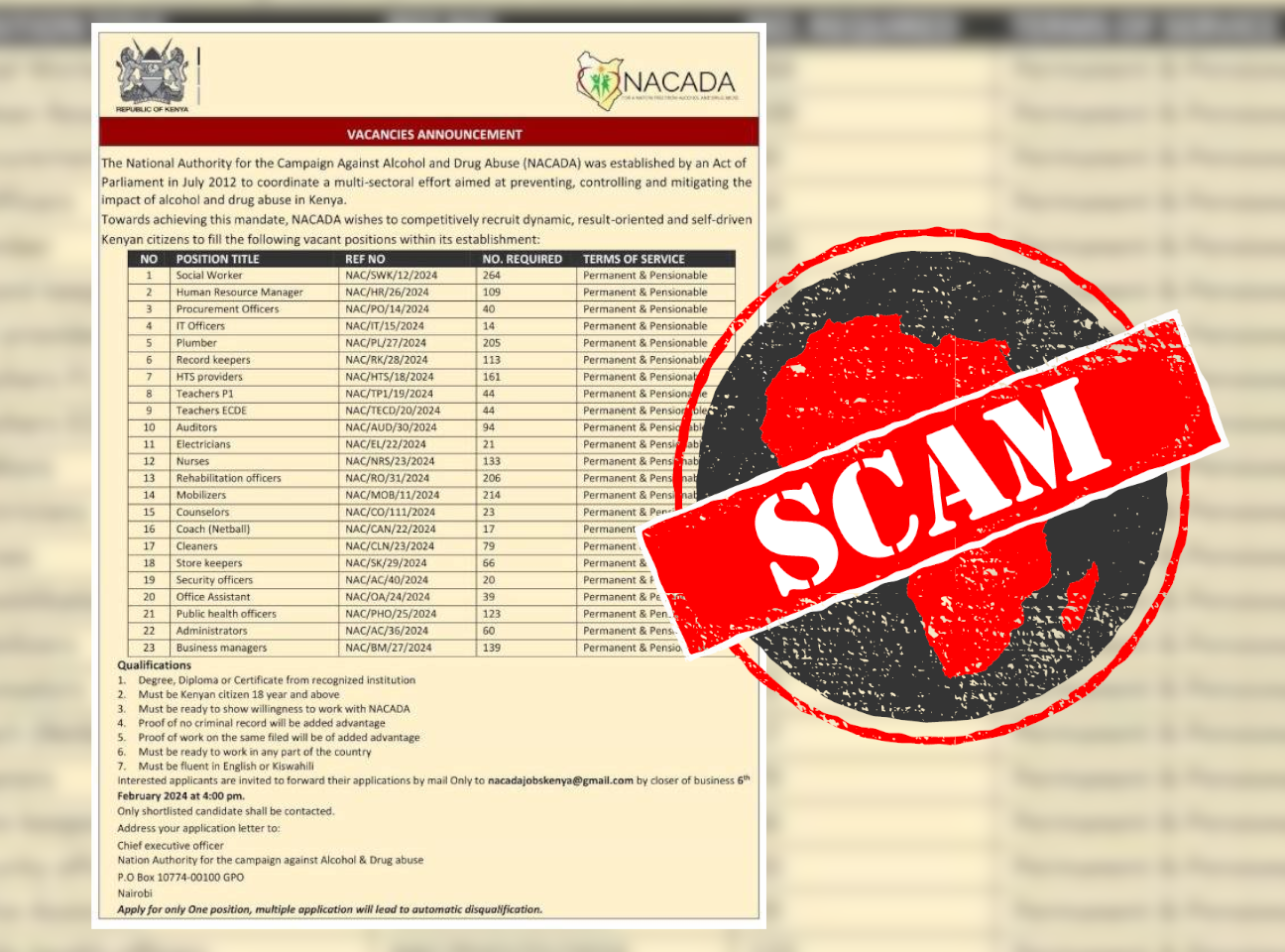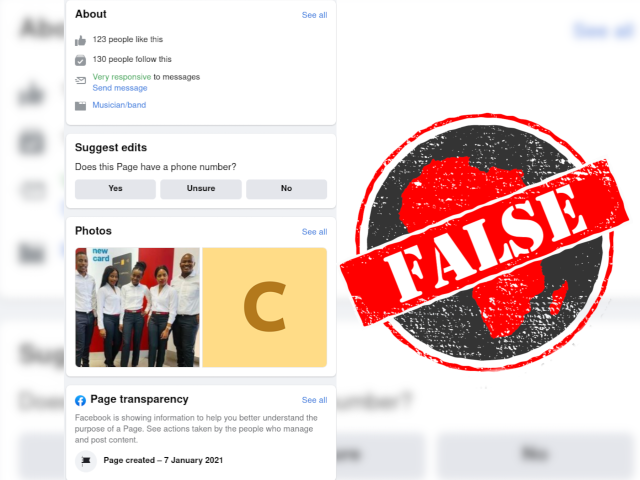IN SHORT: A recruitment ad circulating on social media using the branding of the National Agency for the Campaign Against Alcohol and Drug Abuse is fake and probably a scam.
An advertisement for jobs at Kenya’s National Authority for the Campaign Against Alcohol and Drug Abuse (Nacada) has been posted on Facebook.
Nacada is a Kenyan government agency responsible for fighting drug and alcohol abuse.
The ad, which looks like a screenshot of a newspaper advertisement, claims that the positions available include social workers, procurement officers, teachers, nurses, counsellors, public health officers and administrators.
It also lists the requirements for applicants, including nationality and educational qualifications.
The ad has also been published here and here. But is it legitimate?

Signs of fake job advert
There are a number of signs that this is a fake job advert. The ad has grammatical errors that would be uncharacteristic of a government document. These include “by closer of business” and “multiple application”.
Another clue is the Gmail address given for applications. A large government agency would not use Gmail. An online search shows that Nacada's email addresses usually end in @nacada.go.ke.
We also checked Nacada's website. There were no vacancies advertised at the time of publication.
On its official X (formerly Twitter) account, Nacada has urged the public to ignore the ad.
“FAKE JOBS SCAM ALERT!!! Stay woke … don't get scammed. We are not recruiting. Report to us or the police if asked for money,” the tweet reads.
Republish our content for free
For publishers: what to do if your post is rated false
A fact-checker has rated your Facebook or Instagram post as “false”, “altered”, “partly false” or “missing context”. This could have serious consequences. What do you do?
Click on our guide for the steps you should follow.
Publishers guideAfrica Check teams up with Facebook
Africa Check is a partner in Meta's third-party fact-checking programme to help stop the spread of false information on social media.
The content we rate as “false” will be downgraded on Facebook and Instagram. This means fewer people will see it.
You can also help identify false information on Facebook. This guide explains how.





Add new comment